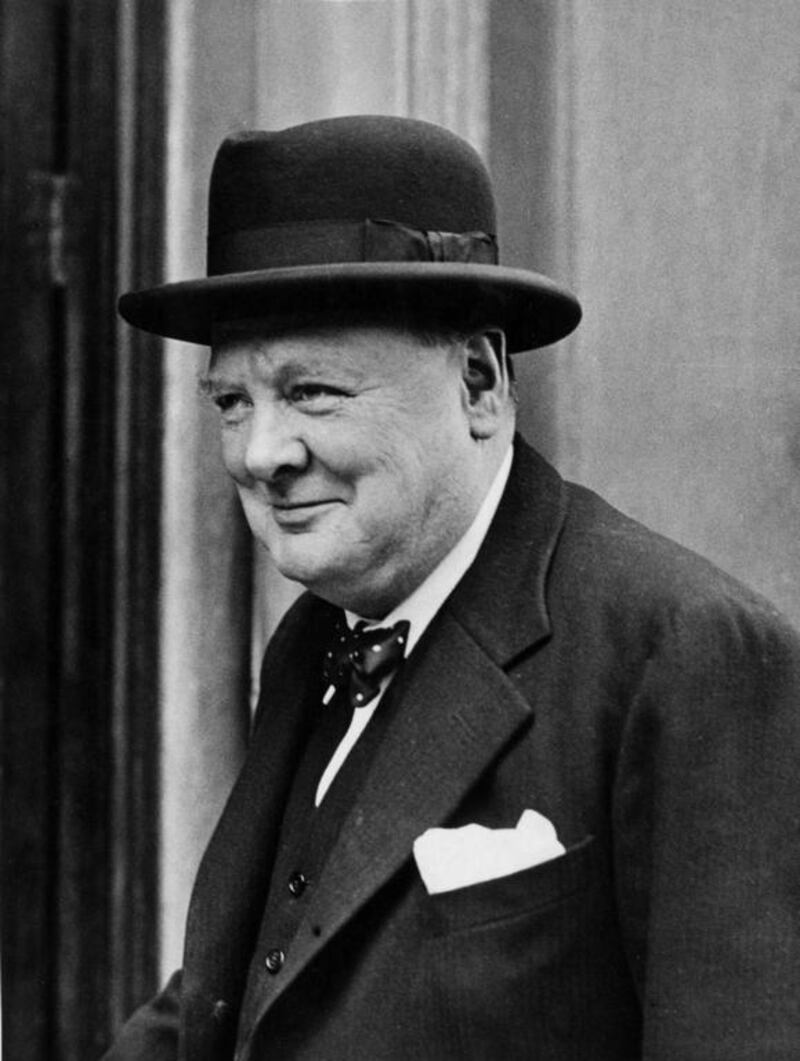Should it matter in 2018 that an American politician named Mike Huckabee recently watched a film about Winston Churchill, a leader who's been dead more than 50 years? Yes, because Mr Huckabee did more than simply watch Darkest Hour, the new film on Churchill. First, he drew his own conclusions. Then, he drew parallels between the dead and the living. Finally, he stirred up a storm over popular history and its place in our cultural consciousness.
Mr Huckabee is a former governor of the southern state of Arkansas. Of late, he has chiefly been known as the father of Sarah Huckabee Sanders, Donald Trump's press secretary. But it is Mr Huckabee's response to the most recent cinematic portrayal of Britain's great wartime leader that renders him particularly important in a fraught time of political polarisation. For, he discerned remarkable similarities between the British statesman and America's bumptious president. Mr Trump, said Mr Huckabee, is the Winston Churchill of the 21st century, "hated by his own party, opposition party, and press. Feared by King as reckless, and despised for his bluntness."
Those who follow Twitter will know that Mr Huckabee’s startling claim has provoked considerable controversy.
Norwegian legislator Kristian Tonning Riise tweeted back in tones dripping with digital sarcasm: “Sure. Churchill served his country 55 years in parliament, 31 years as a minister and nine as PM. He was present in 15 battles and received 14 medals of bravery. He was one of history’s most gifted orators and won the Nobel Literature Prize for his writing. Totally same thing.”
And Susan Pedersen, a professor of British history at Columbia University, told The New York Times that Churchill "had real intellectual and political strengths", which almost, but not quite suggested that President Trump did not compare favourably in that regard.
But it was David Frum, former speechwriter for President George W. Bush, who summed up the inherent problem with Mr Huckabee’s snappy analysis. He sarcastically tweeted that Mr Huckabee’s remarks illustrated the perils of learning history from cinema.
He has a point, though one might well ask how else does a new generation learn history if not through popular references? How do young millennials find out about the great and the good of an earlier time if not through pop songs, cartoons, and Disney films?
_______________________
Read more from Opinion
[ Becky Anderson: The UAE's unifying message is a real cause for celebration ]
[ Brahma Chellaney: Beijing is pursuing a complex strategy to corner natural resources ]
[ Tom Fletcher: Four things we have learnt about the world in the past 12 months ]
_______________________
Call it the Pocahontas principle but it's unlikely that this native American woman from the 17th century would ever have become so well known without the 1995 film, the Barbie doll and one particularly evocative song "Colors of the wind". That said, it's debatable if Disney's Pocahontas actually served any purpose other than commercial for the entertainment conglomerate. The film is accused of whitewashing colonial history by portraying the English conquest of the Americas as a happy cooperative enterprise in which indigenous tribal nations acquiesce with good cheer.
Something similar is alleged about Exodus, the blockbuster 1960 American film based on Leon Uris's popular novel of the same name. Critics said the film successfully made Israel "a land of heroes and handsome fighters", and turned the Jewish struggle for a homeland into "a tale of brave men overcoming the dangers of a wild frontier to bring law, order, and civilisation to a new land". The criticism lies in the film's lack of nuance, contextualisation or indeed, any sense there were winners as well as losers in the Israeli-Palestinian story.
Then there is the dramatic licence – with character and events – taken by Lawrence of Arabia, David Lean's biopic of the British officer who inspired and led an Arab revolt against the Ottoman Turks. Lawrence's younger brother and heir to his estate complained the film was "pretentious and false" in its portrayal of him. There have been numerous other criticisms of the way it shows Lawrence's Arab troops as undisciplined and untrained Bedouins, and Arab culture in general as brutal. But the film's defenders always point to the sumptuousness of the sets, as well as its stark view of British imperialism in the Middle East. Michael Korda, who wrote a biography of Lawrence, excused any and all inaccuracies by defining the film's objective as not to produce "a faithful docudrama that would educate the audience, but a hit picture."
There’s the rub. If history is to be conveyed to new and young audiences through popular cultural mediums, it must necessarily assume an entertaining, marginally feelgood form, taking on schmaltzy or swashbuckling characteristics that engage the emotions sans critical analysis and too many layers of complexity. As is clear from the criticism of Pocahontas, Exodus and Lawrence of Arabia, popular culture’s take on history generally implies a certain level of reductionism.
It can lead to the sort of fanciful, easy extrapolations offered by Mr Huckabee on President Trump’s allegedly Churchillian qualities.
Cinema cannot teach history so much as awaken the desire to learn it.





